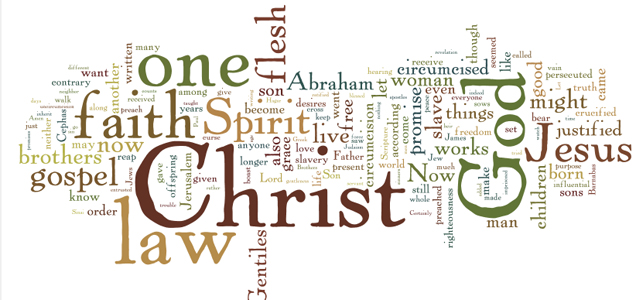Until reaching the line in the Apostles’ Creed that begins “Suffered…”, you would think it has been describing a perfect world. It has spoken of the God who created the world and then enters into that world through the womb of a woman. So far, there is no hint that anything is wrong. The Apostles’ Creed makes no mention of the fall, original sin, or the problem of evil. But now we overhear ourselves saying the word “suffered” and, with a painful jolt, we realise that all is not well.
When God comes into the world in the person of Jesus, God is met with violent resistance. The creatures turn against their creator. The loving creator of the world has been cast out of doors. The judge of the earth has come among us, and we have placed ourselves in the judgment seat, rejecting him and excluding him. “He came unto his own, and his own received him not” (John 1:11). Though the creed offers no theoretical solution to the problem of evil, it reminds us that it is God, most of all, who is affected by the fallenness of our world. God suffers at human hands. There is room in our world for everything else, it seems – except God.
Among Christian scholars today, one of the main criticisms of the Apostles’ Creed is that it contains no account of the life and ministry of Jesus. But the Creed was intended as a guide to the faithful reading of the four Gospels, not as a substitute for them. The reading of the Gospel stories has always been central to the life of the Christian community.
Whenever we read the Gospels, we are to keep in mind that Jesus was born of a woman; he was a real flesh-and-blood human being. And whenever we read the Gospels, we are to keep in mind that Jesus wasn’t just another human being, but was the living self-expression of God’s will. An aim of the Creed is to provide some general guidelines for the faithful reading of the Gospels, not to include all the details. It focuses our attention on Jesus’ identity as divine and human, the Son of God and Mary’s son.
Still, it’s not quite true that the Apostles’ Creed simply ignores the story of Jesus’ life. In fact, already among Jesus’ earliest followers, it had become customary to sum up Jesus’ whole story under one word: “suffering”. We can already see this within the Gospels themselves: “Was it not necessary that the Messiah should suffer these things…?” (Luke 24:26).
Luke tells us that Paul summed up Jesus’ life in the same way: “It was necessary for the Messiah to suffer” (Acts 17:3). By the time of the later New Testament writings, the word “suffering” had become a convenient formula for referring to the whole story of Jesus’ life and death: “He suffered” (Heb 2:18).
This abridgment of Jesus’ story is no substitute for the unbroken rhythm of reading and re-reading the testimony of the four Gospels. But it is a tried and true safeguard against certain kinds of misreading. The early Christians were tempted to think of Jesus as a supernatural spirit who was untouched by physical life. For them, it was especially important to be reminded that Jesus is a suffering Lord, one who “suffered in the flesh” (1 Pet 4:1).
Christians today might be more tempted by the allure of a triumphalist faith or the promise of a distorted gospel that offers worldly happiness and success. The Apostles’ Creed reminds us that we are baptised into the way of a suffering Messiah who lays upon his followers not a crown, but a cross. We are empowered to share in Christ’s glory only to the extent that we also share in his sufferings (Rom 8:17).
Ben Myers is Lecturer in Systematic Theology at United Theological College












